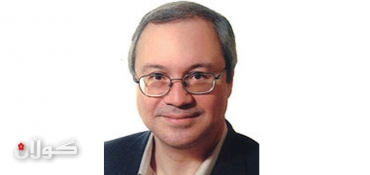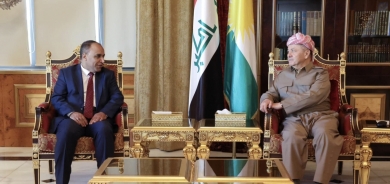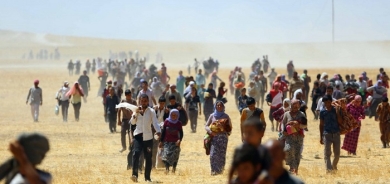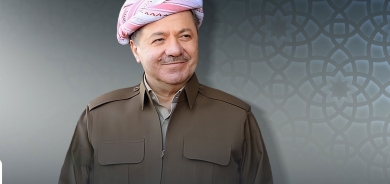Malik Mufti to Gulan: Like their Turkish counterparts, the Arab Islamists will need to gain experience about the realities of governance
November 20, 2013
Exclusive Interviews

Malik Mufti teaches courses on international relations as well as the politics of the Middle East. He is the author of Sovereign Creations: Pan-Arabism and Political Order in Syria and Iraq (1996), and Daring and Caution in Turkish Strategic Culture: Republic at Sea (2009).Gulan: The Islamic political parties which came to power through Arab spring have failed, in addition to Egypt, in Tunisia and Libya their situation is the same. According to your opinion; after 80 years trying to get into power, why the Islamic political parties failed within their first session?
Mufti: The upheavals collectively known as the "Arab Spring" are less than three years old, so one should be careful about jumping to premature conclusions about the success or failure of various political actors, or about generalizing from the experiences of different countries. In the Turkish case, for example, it took the Islamists and their secular-nationalist opponents several decades to get to a point where they coexist within a relatively stable (if still fragile) democratic framework. Like their Turkish counterparts, the Arab Islamists will need to gain experience about the realities of governance, including the necessity of dealing effectively and respectfully with state institutions and segments of the population which not may not share their views. The same is true of their secular-nationalist opponents, and the learning process for both sides is likely to be protracted and difficult. If wise statesmanship is shown by leaders on both sides, the transition to democracy will be relatively smooth. If not, terrible things – not excluding the sort of wars of religion we saw in Europe in past centures – are possible in the interim.
Gulan: Arab spring disclosed that it is not Islam which cannot get along with democracy, but it is the Islamic parties which consider democracy as a reason just for getting into power, if Islamic political parties cannot adopt to democracy, what will happen to the future of Arabic countries?
Mufti: Two things are certain in the midst of all this uncertainty. First, that regional politics will continue to be articulated within the context of Islamic faith and culture, which means that Islamist parties will continue to play a dominant role – there is no purely secular alternative. Second, that the dawn of the democratic age in this region cannot be reversed, although there can certainly be setbacks here and there. Together, these two facts mean that the question of how well Islamist political parties adapt to democratic norms and practices is the central question of our time.
Gulan: The examples that the Islamic parties have presented are Hammas in Palestine, Lebanon Hizbullah, and Muslim-Brotherhood in Egypt, experts used to think that these parties should be tested practically in terms of ruling, in your view, don’t you think that it is time for international community to support and help people in these countries to step towards democracy development?
Mufti: The role of outsiders in this process will be limited. Regional actors such as Turkey have something useful to contribute in terms of political and institutional experience, and more distant actors such as the Europeans or Americans can contribute to creating a more benign environment – for example by promoting a resolution to the destabilizing conflict in Palestine – but ultimately the necessary changes will have to come from within.
Gulan: Some experts think that the non-Arabic Islamic countries like Malaysia and Turkey have presented a good model of democracy, although Justice and Development party is currently in power in Turkey, Turkey’s constitution is kind of secular one. In your opinion, why cannot political parties of Arabic countries participate in political life just like parties in Malaysia and Turkey?
Mufti: The experiences of countries such as Turkey and Malaysia indicate that democratization is indeed possible in an Islamic context. The question is whether wise leadership can prevent the process from derailing into ideological conflict or from undermining core Muslim ethical values.
Gulan: Another aspect which the Islamic political parties pursue is about violence and ignoring mediation and tolerance. But as we have seen in Egypt, the brotherhood has not been just against this path, but since Al-Azhar university was playing a mediating role, they also stood against the university, and also they rejected Egyptian history which they were about to break the pyramids and they prohibited ballet art. In your view, why did Muslim-Brotherhood pursue such a violent policy by reaching the authority?
Mufti: Extreme voices will always be heard during such transitions, particularly when there is no past experience with democratic practice. But there is no reason why wiser and more prudent elements cannot prevail within the leadership of the Muslim Brotherhood, as happened with the Turkish Islamists who embraced democracy.
Gulan: If we imagine that all Arabic countries to be ruled by Islamic parties, as we see now most of the Arabic countries have been dominated by Islamic parties. So, to what extent Islamic rule will create a ground for clash of civilization? This is not as Islamic religion, but as Islamic political parties of Arabic countries.
Mufti: Once again, the issue isn't a distinction between Islam and Islamist political parties – a truly democratic context will inevitably be characterized by major Islamist political parties. The possibility of avoiding conflict – whether within the Islamic world, or with other civilizations – depends on how successfully the transition to democracy is managed.















